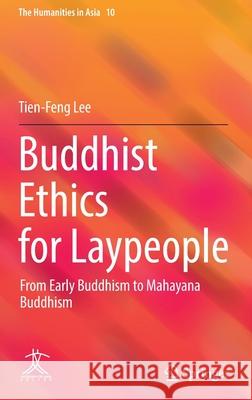Buddhist Ethics for Laypeople: From Early Buddhism to Mahayana Buddhism » książka
topmenu
Buddhist Ethics for Laypeople: From Early Buddhism to Mahayana Buddhism
ISBN-13: 9789811684678 / Angielski / Twarda / 2022 / 176 str.
Buddhist Ethics for Laypeople: From Early Buddhism to Mahayana Buddhism
ISBN-13: 9789811684678 / Angielski / Twarda / 2022 / 176 str.
cena 401,58
(netto: 382,46 VAT: 5%)
Najniższa cena z 30 dni: 385,52
(netto: 382,46 VAT: 5%)
Najniższa cena z 30 dni: 385,52
Termin realizacji zamówienia:
ok. 22 dni roboczych.
ok. 22 dni roboczych.
Darmowa dostawa!
Kategorie BISAC:
Wydawca:
Springer
Język:
Angielski
ISBN-13:
9789811684678
Rok wydania:
2022
Ilość stron:
176
Waga:
0.42 kg
Wymiary:
23.39 x 15.6 x 1.12
Oprawa:
Twarda
Wolumenów:
01
Dodatkowe informacje:
Wydanie ilustrowane











